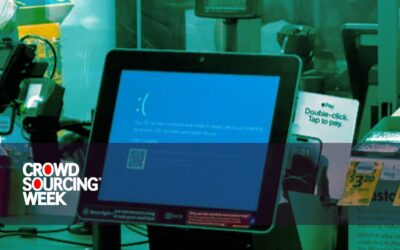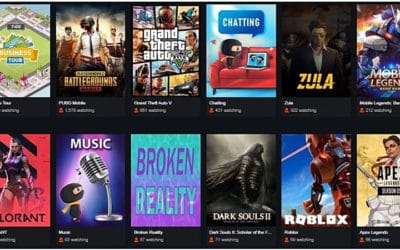Check out our curated Weekly Roundup of the breaking news and must-read – Democracy is getting a reboot on the blockchain; Startup using machine learning and satellite imagery to predict crop yields; Moovit speeding up their delivery of real-time updates and many more …
Democracy is getting a reboot on the blockchain
A Latin America startup called Democracy Earth, is fighting corruption through Internet voting technology
In 2013, a group of activists in Buenos Aires attempted an experiment in what they called hacking democracy. Representatives from their new political party would promise to always vote on issues according to the will of citizens online. Using a digital platform, people could tell the legislator what to support, in a hybrid of a direct democracy and representation. The Internet transformed how we share culture, work together – and even fall in love – but governance has remained unchanged for over 200 years. With the rise of open-source software and peer-to-peer networks, political intermediation is no longer necessary. We are building a protocol with smart contracts that allows decentralized governance for any kind of organization.
How to run a successful mobile crowdsourcing project
App developers must respect the quirks of smartphone culture when crowdsourcing. More here
But would-be mobile crowdsourcers must be aware of smartphone users’ particular concerns or they are likely to fail. First, choose the right type of task. Christian Rozsenich, managing director at crowdsourcing provider Clickworker, based in Essen, Germany, says short tasks suit mobile users best. They can easily handle image processing and pattern recognition tasks that require fewer than 10 seconds during a lull in the day, for instance. Assignments such as snapping a photo at a place the user is likely to be anyway, such as a supermarket, also tend to be more popular than those that require special plans.
This startup uses machine learning and satellite imagery to predict crop yields
Learn how Johnson’s startup, Descartes Labs, is predicting crop yields through AI and satellite imagery
Mark Johnson wants to beat the United States Department of Agriculture at its own game: predicting yields of America’s crops. The USDA puts boots on the ground, deploying hundreds of workers to survey thousands of farms a month ahead of the October corn harvest, America’s biggest crop. Johnson’s startup, Descartes Labs, has just 20 employees, and they never leave the office in Los Alamos, New Mexico. Instead, Descartes relies on 4 petabytes of satellite imaging data and a machine learning algorithm to figure out how healthy the corn crop is from space
Crowdsourcing the transformation of mass spectrometry big data into scientific living data
This is the first report on the establishment of an online crowdsourced knowledge base that could be a game-changer for the study of natural products that could potentially be useful in the development of the next antibiotic, better pesticides, or more effective cancer drugs.
“The potential of the diverse chemistries present in natural products remains untapped because natural product databases are not searchable with raw data and the research community has no way to share data other than through published papers,” the paper noted. “Mass-spectrometry (MS) techniques are well-suited to high-throughput characterization of natural products, so there is a pressing need for an infrastructure to enable sharing and curation of the data.”
Moovit is speeding up their delivery of real-time updates
Israeli transit app Moovit expands crowdsourcing to give users more info for their commute
The Israel-based transportation app Moovit, which aggregates public transit data for and from its users, helping them to plan the fastest routes to get where they are going, works with commuters to overcome these customer service gaps. The latest update to it, for Android as version 4.13, will allow users to make “edits to many attributes of a station.” This means that users can add entrance-exit specifics (useful for pickup and drop off plans) and upload photos that can be useful for identifying the right stop. It also marks a significant expansion of the reporting base from an existing 65,000 editors and ambassadors to that of all Moovit users, which includes some 40 million commuters across 65 countries. Yovav Meydad, Moovit VP of Products, said in a statement marking the update that “We’re now empowering all of our millions of users to make changes and improvements within the app.”
Why science should be crowdsourced — sometimes
Crowds are excellent at finding answers to problems, but we still need scientists to work at defining the questions. Find out more in this article
Scientific data today is not only easier to share — there is also a lot more of it. Saez-Rodriguez and his colleagues argue that this means crowdsourcing will become increasingly important in science, since “it is highly likely that the methods and breakthroughs that get the most useful signal from big data may reside with groups other than the data generators or the most famous and best published groups in the field.” This is one reason why crowdsourcing can be successful: Rather than make assumptions about which experts are best suited to solve a problem, crowdsourcing brings in “a wide range of sources without a priori (sic) expectations as to who may be best positioned to solve the problem.”
Image: fastcoexist
There are many fantastic stories out there. What else caught your eye this week? Did you come across some breaking news or a good thought piece? Do share them with us…




Really nice News RoundUP, it’s especially great to see the infinite possibilities Crowdsourcing and Data Science are bringing!! 🙂